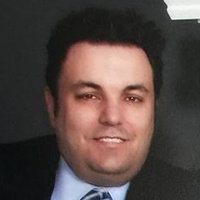Southfield RICO Act Lawyer, Michigan
Sponsored Law Firm
-
 x
x

Click For More Info:
-
Law Office of Mark S. Guralnick
55 Madison Avenue 4th Floor Morristown, NJ 07960» view mapCriminal Defense Law Dedicated. Fearless. Successful.
Mark S. Guralnick and his legal team have helped clients throughout the USA and across the world by applying unparalleled dedication and hard work to each case.
800-399-8371
Not enough matches for Southfield RICO Act lawyer.
Below are all Southfield Criminal lawyers.
Ezra N. Goldman
✓ VERIFIEDOur law office is more than just a law office. We have immediate access to CPAs, tax and insurance professionals. Our web of contacts includes docto... (more)
Nicholas Somberg
✓ VERIFIEDNicholas Somberg is a practicing lawyer in the state of Michigan handling criminal defense cases.
Racine Miller
✓ VERIFIEDRacine Miller is the managing partner of The Michigan Law Firm, PC. Ms. Miller is an experienced litigator and trial attorney, who can proudly claim ... (more)
Dean Elliott
✓ VERIFIEDCo-Counsel on the largest police misconduct verdict in Michigan history and the largest verdict in Michigan this year! On November 3, 2016, a jury in... (more)
Richard M. Halprin
✓ VERIFIEDAs an experienced attorney and district court magistrate, Richard Halprin has cultivated a network of relationships within the legal community, includ... (more)
David J. Poulton
✓ VERIFIEDDavid Poulton is a practicing lawyer in the state of Michigan. He received his J.D from Michigan State University College of Law in 1998.
Valenton Vulaj
✓ VERIFIEDValenton Vulaj is a practicing lawyer in the state of Michigan. Attorney Vulaj received his J.D. from the University of Detroit Mercy in 2000.
Elliot D. Margolis
✓ VERIFIEDMr. Margolis has been rated “highly qualified” by judges and other attorneys, according to legal rating service Martindale-Hubbell. He is a member... (more)
Brent Jaffe
Upon passing the bar Attorney Brent Jaffe joined his father's firm to form Jaffe Law Group. "I was drawn to the practice of law because this professio... (more)
 Mark Guralnick Morristown, NJ
Mark Guralnick Morristown, NJ AboutLaw Office of Mark S. Guralnick
AboutLaw Office of Mark S. Guralnick Practice AreasExpertise
Practice AreasExpertise










